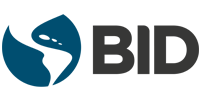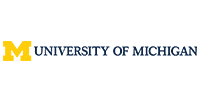Career Pathways
Public Health
Public health careers involve working to improve the overall well-being of communities and populations through various strategies. These careers are crucial for safeguarding and promoting the health of societies on a local, national, and global scale. As there are many levels and work environments, the outlook for jobs within the field of public health is bright. Benefits include career fulfillment, local and global impact, job security, and more.

Specialization opportunities
There are several expansive sub industries within the field that are ever-evolving.
Advancement opportunities
Projected growth in public health is 12% from 2021 to 2031.
Desirable payscale
Public health professionals make higher than the average median annual wage.

Kimberly Anderson, Licensed Clinical Social Worker
Listen as Licensed Clinical Social Worker Kimberly Anderson shares how she utilizes her public health skills to serve her community.
Although there was, you know, a lot of confusion in general, on the news and the general population, public health officials can be trusted. Now whether or not other people trusted them, that’s a different story. But if you really want to know what’s going on, you can trust your local public health because their interest is always in the community. They don’t have an agenda other than to help you be healthy. So it really was nice to see that the community trusts the providers and the providers, then take that trust, and really hold it very dear to their hearts, and provide the best possible information and support that they can.
Discover your career opportunities
As the demand for public health grows, so do the job opportunities. Here are a few job titles available to individuals with public health skills:
| Entry level | Mid level | Senior level | Entrepreneurial |
|
| Clinical Data Manager | ||||
| Communications Director | ||||
| Disaster and Crisis Management Analyst | ||||
| Environmental Compliance Lead | ||||
| Epidemiologist | ||||
| Evaluation Specialist | ||||
| Health Educator | ||||
| Health-tech Startup Founder | ||||
| Nutrition and Wellness Coach | ||||
| Policy Director | ||||
| Program Coordinator | ||||
| Program Director | ||||
| Project Manager | ||||
| Public Health Consultant | ||||
| Scientist | ||||
| SVP of Global Health Advocacy |
Learn about topics in public health
Register for a course on edX to learn about a variety of topics within the public health industry.
How can I acquire public health skills and turn them into a career?
If developing skills related to public health interests you, we recommend taking these steps:
Research is key when it comes to any career, and a career in public health is certainly no exception. Take advantage of all the information out there, whether through browsing the internet for job titles, listening to industry-specific podcasts, or getting connected to professionals in the areas or positions that interest you.
One key part of the research phase is networking. This simple step is often overlooked and undervalued but can significantly impact your career trajectory. To clarify your career goals and aspirations, you must talk with professionals about what the work looks like.
You open a door of opportunity in your career by reaching out to professionals in your targeted fields, positions, and companies. Connecting with public health professionals who could provide hard-to-find intel about the industries or organizations of interest is invaluable.
Check out our Networking guide and Networking outreach samples for help getting started.
To supplement your understanding of what others are doing professionally, gain clarity on your own goals and aspirations. Ask yourself what about public health interests you — the possibilities are endless.
Public health skills are valuable and can be applied to many different industries. Specific skills within the public health industry will increase the value you can add to a job and increase the pool of job postings you qualify for.
Transferable skills and qualities
Transferable skills are skills you carry from one job to another, enhancing your adaptability and versatility. Here are a few transferable skills that complement public health well:
- Critical thinking
- Communication
- Collaboration
- Adaptability
- Flexibility
- Analytical
- Problem-solving
Field-specific skills
Field-specific skills are vital in public health as they equip you with the necessary tools to effectively address public health challenges. These skills enable accurate data analysis, informed policy formation, and comprehensive risk assessments, all of which are critical for promoting healthier communities and responding adeptly to public health issues. Here are a few examples of these skills:
- Policy analysis
- Epidemiology
- Public health data management
- R, STATA, or SAS
- Biostatistics
- Community outreach
- Design health interventions
- Environmental health risk assessment
- Research
You can learn public health skills in a variety of ways. Consider which route best fits your needs and learning style. Here are a few options to consider:
Self-education — If you want to learn asynchronously, informally, or casually, self-education is a great place to start. Many approaches to this learning style support career goals, budgets, learning styles, and time commitments. Here are some to consider:
- Informal opportunities: Gain a greater understanding of public health by reading. Explore books, articles, and even research papers to expand your public health knowledge and learn what’s happened or is happening in the field. Not a reader? Plenty of videos, podcasts, and other forms of multimedia can teach you about careers or work related to public health.
- Online courses: If you prefer a more structured or socialized learning experience, online courses might be a good option. edX.org offers several instructor-led and self-paced public health courses that may be of interest.
Degree programs — Pursuing a degree in public health offers the opportunity to make a tangible impact on the well-being of communities by gaining a deeper understanding of health dynamics, effective interventions, and policy frameworks. It equips you with the knowledge and skills to address diverse health challenges and engage you in a rewarding career dedicated to improving population health outcomes.
Interviewing for public health positions will likely rely on behavioral interviewing questions. Stay informed about current health issues and practice formulating your responses in an organized, thoughtful manner. If you have experience creating a protocol, intervention, or policy, be ready to highlight your process and the impact that you have made. Potential employers will want to know both your public health skills and transferable skills. Remember to be authentic and exude confidence during your interview.
Once you achieve your public health career goal, celebrate your success. The career journey is full of ups and downs, and every victory deserves acknowledgment.
With that said, your journey doesn’t end here — it’s only just beginning. Give yourself grace and understand that careers are not linear. Here are some ways you could continue growing your public health skills:
Continued learning — Always reference our course catalog on edX.org for continued learning opportunities. It never hurts to brush up on your skills, expand your knowledge within the industry, or learn about other subjects that could apply to your work, interests, or something in between.
Promotions — As the public health industry continues to grow, so will future job opportunities. To position yourself well for promotions, you will need to stay current on continuing education opportunities and develop leadership skills.
Chief Global Health Officer: Oversees and coordinates international health initiatives, strategies, and partnerships to address global health challenges and improve health outcomes on a global scale.
Pivots — Make sure to regularly check in with yourself and your satisfaction with daily tasks. If you are dissatisfied in your current role, take stock of what you like and dislike about it, keep your eyes out for company-sponsored growth opportunities, and pursue career pivots that optimize your background, skill set, and interests.
What are my next steps?
Start learning now
Register for a course on edX to learn about a variety of topics within the field of public health.
Watch a session
Watch a relevant session on our Events Page to learn more about the industry and other professional’s experiences within it.
Charting New Horizons: Navigating Career Shifts From Employee To Entrepreneur
Whether you’re contemplating a professional transition, venturing into freelancing, or aiming to elevate your entrepreneurial prowess, Lydia’s presentation guarantees valuable insights and tangible strategies. View this webinar to get inspiration, motivation, and practical advice as Lydia guides you through the dynamic journey from being an employee to flourishing as an entrepreneur. The views and opinions…

Designing For Financial Success: Harnessing The Power Of Fintech And UX Design
In this webinar, we delve into the importance of user experience (UX) design in creating financial products, discover industry trends, and provide valuable insights into the ever-evolving job market. Our speaker Saurabh Bose is the Principal UX Designer at Backbase and has over 15 years of experience in designing innovative design solutions and entrepreneurial projects.…

Strategies For Success: Establishing A Product Management Foundation
View this insightful webinar where we unravel the secrets to early success in the realm of product management. Delve into the essential strategies and skills vital for junior Product Managers, providing a strong foundation for a thriving career. Senior Product Manager, Jess McPheron, will give us a closer look at his path to Product Management,…















